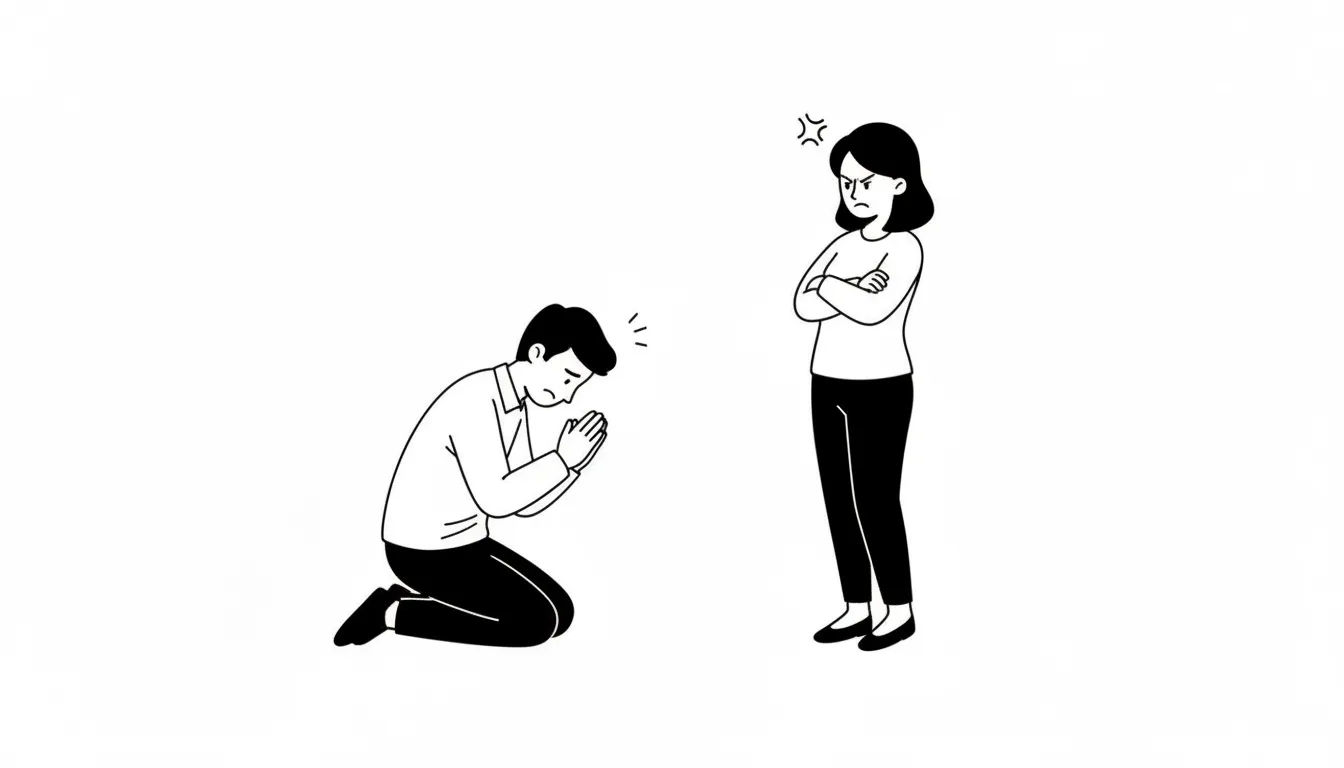
10 Useful Phrases To Apologise In English
10 common phrases to apologise in English: I’m sorry, I apologise, I beg your forgiveness, etc. Learn how to use them here.

Table of contents
There are times when an apology just doesn’t cut it, right? Or maybe it does, but it just doesn’t feel like it’s enough. It is important to apologise when you have done something wrong. Doing so shows that you are mature and responsible, and it can also help you to build a stronger relationship with the person that you have hurt. Also, and most importantly here, apologising is not just about saying sorry but also about how the apology is delivered, so in this post you will learn 10 ways to apologise in English. 🙂
1. I’m (…) sorry!
Ha! This is a classic! But try not to stick with a simple three-word phrase! Be more expressive and say something like «I’m terribly sorry I sent you 17 messages last night!» or «I’m awfully sorry! I didn’t know this would happen…«. You can also use the adverbs deeply, desperately, dreadfully, extremely, frightfully, genuinely, really, truly, very, etc.
2. I’m sorry to have…
In this case we can say something like «I´m sorry to have sent you 17 unintelligible messages by mistake» or «I’m sorry to have made such a stupid mistake.«
3. I apologise (for…)
You can use this expression in sentences such as «I apologise for the mistake.» or «I apologise wholeheartedly.» You actually sound quite formal when using these, so make sure you only use it in such situations.
4. Please, accept my (…) apologies.
This one’s also formal, and it can be modified by adding a suitable adjective to the noun «apologies». For instance: «Please, accept my sincerest apologies.» or «It was a mistake. My profuse apologies.» Ewwww! That just doesn’t sound good! But well, it’s another way to apologise.
5. Please, forgive me!
This one sounds desperate, but desperation may come in handy at some point during an apology. For example: «Please, forgive me. I had no idea that those messages were going to be sent…» or «Please, forgive my ignorance. I’m not that good at new technologies.«
6. I beg your forgiveness.
If number 5 sounded desperate, you should know that «I beg your forgiveness.» is much worse. This expression might be useful when apologising publicly to an audience. Quite common among politicians and other poor devils…
7. Sorry! I’m such a tool! Silly me!
Demeaning yourself during an apology can also prove useful. If you «insult» yourself a little, the other person will hopefully feel that you really mean the apology. This is not a formal thing, though, so don’t use it in a formal context. You can say things like «I’m such a tool!» or «God! I’m such an ass!«. These sentences also work with other expressions. For instance:
God! I’m so sorry! I’m such an idiot! I should have known that something like this could happen.
8. I feel so ashamed…
Showing regret is an essential part of apologising, so these expressions do this perfectly: «I feel so ashamed (of myself)«, «I’m so embarrassed (about all this)» or «I have reflected on my actions and cannot express how sorry I am.«
9. I take full responsibility.
This is probably a good one when there are real consequences. For example: «I take full responsibility for the messages sent last night.» or «I’m happy to take the blame for the mistake.«
10. Please, don’t hold/bear a grudge!
In this case, we’re begging the listener/reader to try not to let the mistake change their attitude towards the person apologising. So «I beg you, don’t bear a grudge!».
For more useful tips, don’t forget to follow KSE Academy on Facebook, Twitter and Instagram!
And now, as one of my all-time favourite kings said:
I’m very sorry. I made a mistake. It won’t happen again. – Juan Carlos I of Spain